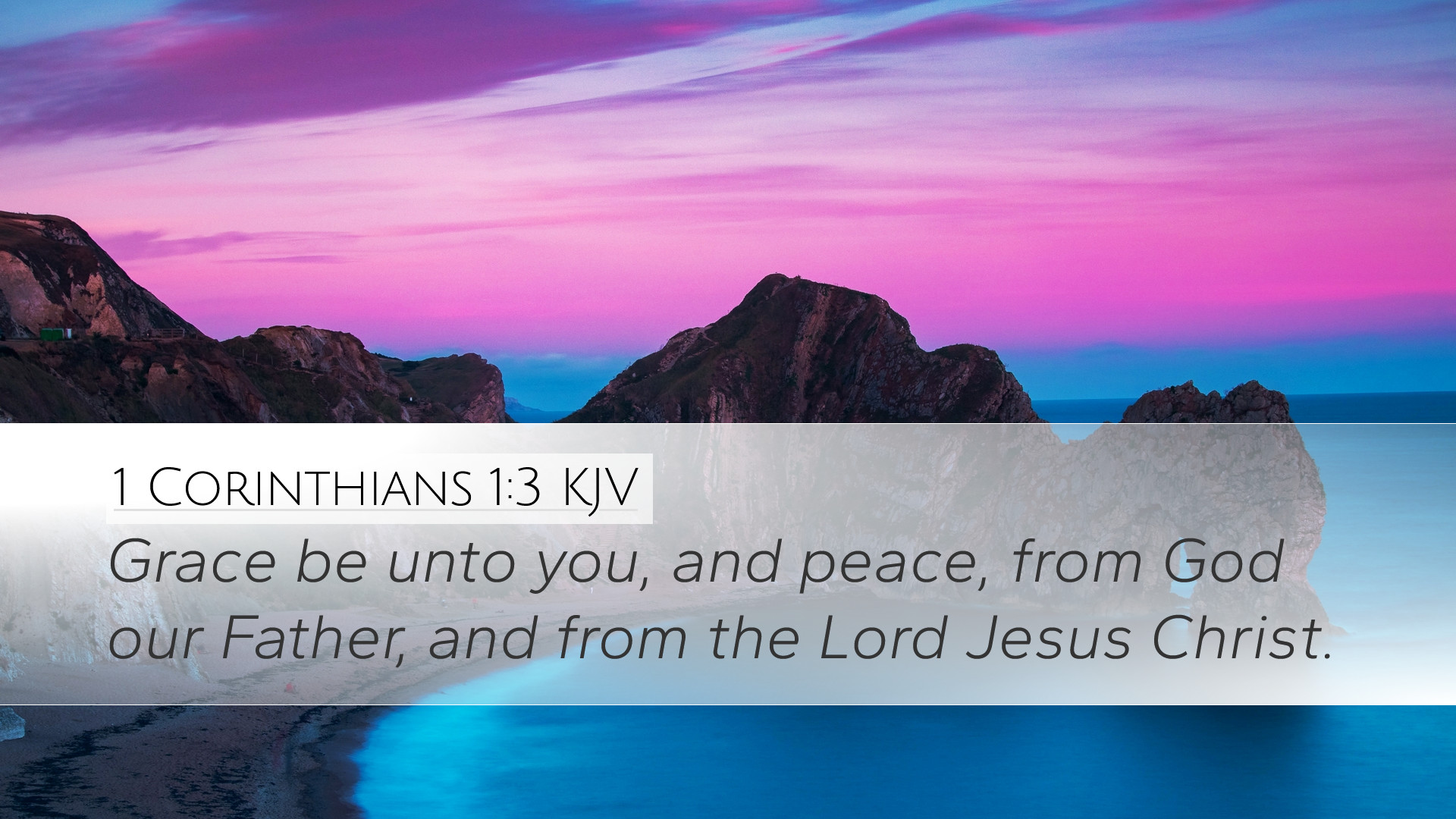1 Corinthians 1:3 - Biblical Commentary Overview
Verse Text: "Grace be unto you, and peace, from God our Father, and from the Lord Jesus Christ."
Introduction
This verse serves as the greeting in Paul's letter to the Corinthians, encapsulating the essence of the Christian message. Paul’s opening remarks are not mere formalities but carry profound theological significance, setting the stage for his discourse throughout the epistle.
Grace and Peace
Paul’s greeting introduces two fundamental concepts: grace and peace. Each of these terms is rich in meaning and applicable to the life of believers.
- Grace: In the biblical sense, grace refers to God's unmerited favor bestowed upon humanity. Matthew Henry emphasizes that grace includes the idea of enabling power, which sustains the believer in their journey of faith.
- Peace: The peace referred to here is both external and internal. Albert Barnes notes that this peace arises from a relationship with God, leading to tranquility in the heart amidst life's tribulations.
The Source of Grace and Peace
Paul attributes grace and peace to two distinct persons within the Godhead: God the Father and the Lord Jesus Christ. Adam Clarke elaborates on this by highlighting the cooperative roles within the Trinity in bestowing grace and peace upon believers.
- God the Father: He is the ultimate source of all blessings. This establishes a foundation for understanding God as a loving Father who desires the best for His children.
- The Lord Jesus Christ: His mediatorial role is crucial; through Christ's sacrifice, believers receive grace. Clarke further notes that recognizing Jesus as Lord signifies His authority over all aspects of life, reinforcing the significance of submitting to His lordship.
Theological Implications
The greeting in this verse highlights crucial theological themes that Paul will address throughout the letter. It invites deeper reflection on God's character and the implications of grace.
- Divine Sovereignty: The wording of “from God our Father” suggests a familial relationship, implying that every believer has access to the Father’s grace and peace. Henry contemplates the sovereignty of God where grace is freely given, which cannot be earned through human effort.
- Christological Focus: By associating grace and peace with Jesus Christ, Paul underscores the importance of Christ in the believer's life. Barnes indicates that this highlights the reliance upon Christ for both salvation and ongoing sustenance in the faith.
Application for the Church
Paul’s greeting can be seen as a model for church leaders in addressing congregations. The emphasis on grace and peace encourages an environment of acceptance and fellowship.
- Encouragement for Pastors: This verse should inspire pastors to lead with grace, promoting a culture where people feel secure to express their struggles. Clarke notes that the church thrives when it exemplifies the grace it preaches.
- Hope for Believers: For individual Christians, this assurance of grace and peace can be a reminder that despite external challenges, their identity and hope rest in the saving grace of God.
Conclusion
1 Corinthians 1:3 serves as a profound expression of Paul’s theology and pastoral heart. By invoking grace and peace, Paul not only sets a tone for his letter but also provides timeless truths that resonate with all believers. Understanding these concepts is foundational to engaging with the entirety of the Pauline epistles, as grace and peace encapsulate the Gospel message and the believer's experience in Christ.


